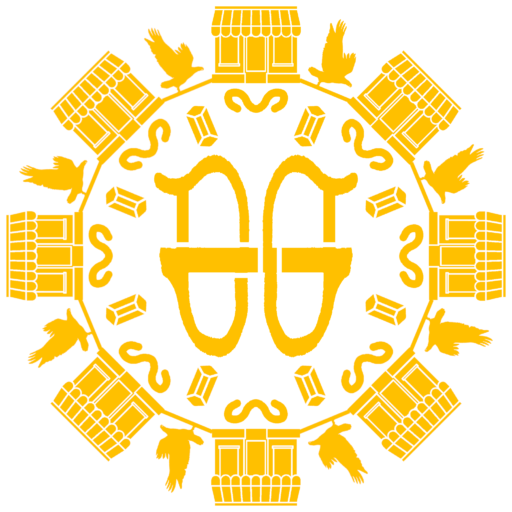So, this will be the first in my series. Since Thomas Jefferson was one of the more notable intellectuals among the Founding Fathers, I decided to start with him. My idea behind this series is that just like genetic lineage, ideas and beliefs also have lineages. While it is somewhat simplistic to think that there was a straight line-of-descent from one philosopher to another, it does give you a moment to think about the transmission of ideas from one philosopher to another by some form of percentage of accuracy.
My idea for this series relies on the following criteria:
- It has to be based on any Founding Father, whether as well-known as Thomas Jefferson, or as obscure as Daniel of St. Thomas Jenifer
- I want to limit the influence-genealogy to the 5th generation (I could get into detail about the medieval Islamic polymaths who procured the works of the Ancient Greek philosophers, but I want to stay focused under constraints right now)
- I\’m not simply going to discuss the ideas of each influence themselves, rather how the simulacrum of belief surrounding those ideas directly pertain to influences that follow, including the Founding Fathers\’ beliefs.
- I will need to emphasize the words \”directly inspired\” and \”indirectly inspired\” when pertaining to the ideas connecting each philosopher. For example, Thomas Jefferson would have been directly inspired by John Locke but indirectly inspired by Rene Descartes.
- Obviously, the philosophers prior to the Enlightenment typically had a strong religious inclination. I try to contextualize that, while also acknowledging the themes of their philosophies that remained relevant.
From Al-Ghazali…
(This video mentions that al-Ghazali inspired Rene Descartes, of course he also inspired many other intellectuals as well)
Abū Ḥāmid Muḥammad ibn Muḥammad aṭ-Ṭūsiyy al-Ġazzālīy was considered one of the greatest Islamic thinkers in history. Of course, the Wikipedia article credits him as: \”…one of the most prominent and influential jurisconsults, legal theoreticians, muftis, philosophers, theologians, logicians and mystics in Islamic history.\” After suffering a personal crisis, he decided to embark on a self-imposed exile, where he would gain the inspiration necessary to write his subversive philosophy. He would write 70 science, reason, and Sufism–a branch of Islam focused on mysticism, which would inspire both Islamic and Christian scholars alike.
Al-Ghazali\’s emphasis on logic is one of the key themes of his philosophy, which ran despite the philosophers of his time making arguments of based on Neo-Platonism. Logic would be essential to developing deeper faith to God, rather than blind ignorance and hardline dogmatism. However, he acknowledged that personal senses alone cannot determine logic.
Thomas Jefferson was himself a Deist directly inspired by the ancient Greek and ancient Roman philosophers, but I can see how the usage of logic and reason when applied to faith could be a distant encoding of his philosophy.
…To Rene Descartes…
Descartes was known for the axiom:
I think therefore I am
In other words, the sense of being and cognition is enough to determine that you are real. This was the feature of the philosophy of Empiricism, which went against the philosophy of Rationality, which dictates that reason is the foundation of all information.
…To John Locke…
While Locke and Descartes did have differences amongst each other, Locke was clearly inspired by Descartes compared to the classical studies he was tasked with studying. A notable similarity Locke had with Descartes was that the senses are not always a reliable source of information about the world. This is where reasoning comes into play without compromising the individual\’s standing in the world.
…To Thomas Jefferson
Locke\’s theory of the \”consent of the governed\” would become an inspiration to Thomas Jefferson when he was a student at the College of William and Mary. It is for that reason why Jefferson himself considered John Locke one of the greatest philosophers.
Jefferson was specifically inspired by Locke\’s Two Treatises of Government, where he would paraphrase his immortal line of \”Life, Liberty, and the Pursuit of Happiness\”–replacing property with pursuit of happiness.
As for how the ideas tracing back to al-Ghazali are relevant to Jefferson, it may have been the idea that reality is predicated upon logic and reasoning. If that reality can be actualized, then it would make sense that this reality is worth preserving. A way to preserve it is to ensure that the rights are guaranteed so that reality can be beneficial.
Sources
- (Image Attribution): \”Prompt: al-Ghazali and Thomas Jefferson shaking hands.\” Midjourney.
- \”AL-Ghazali\” (PDF). Quarterly Review of Comparative Education. 23: 3–4.
- \”al-Ghazali.\” Wikipedia.
- \”Al-Ghazali\’s Turning Point: On the Writings on his Personal Crisis\”. www.ghazali.org.
- Banuazizi, Ali; Weiner, Myron (March 1994). The Politics of Social Transformation in Afghanistan, Iran, and Pakistan. Syracuse University Press. p. 108.
- Chakrabarti, Dipanwita. \”Descartes’s Influence on Locke’s Theory of Knowledge.\” J. Indian Counc. Philos. Res. 40, 133–151 (2023).
- CrashCourse. \”Locke, Berkeley, & Empiricism: Crash Course Philosophy #6.\” YouTube. 2016.
- Griffel, Frank (2009). Al-Ghazālī\’s Philosophical Theology. Oxford: Oxford University Press. ISBN 9780195331622.
- Ibn Khaldūn. 1958 The Muqaddimah: An introduction to history. Translated from the Arabic by Franz Rosenthal. 3 vols. New York: Princeton. Chapter 6 section 28
- \”John Locke.\” New World Encyclopedia.
- Joy of History. \”Natural Rights: Declaration of Independence, John Locke & Thomas Jefferson.\” YouTube. 2020.
- Oases of Wisdom. \”Al-Ghazali – The Bane of the Philosophers.\” YouTube. 2023.
- Wills, Garry (2002), Inventing America: Jefferson\’s Declaration of Independence, Boston: Houghton Mifflin Co
